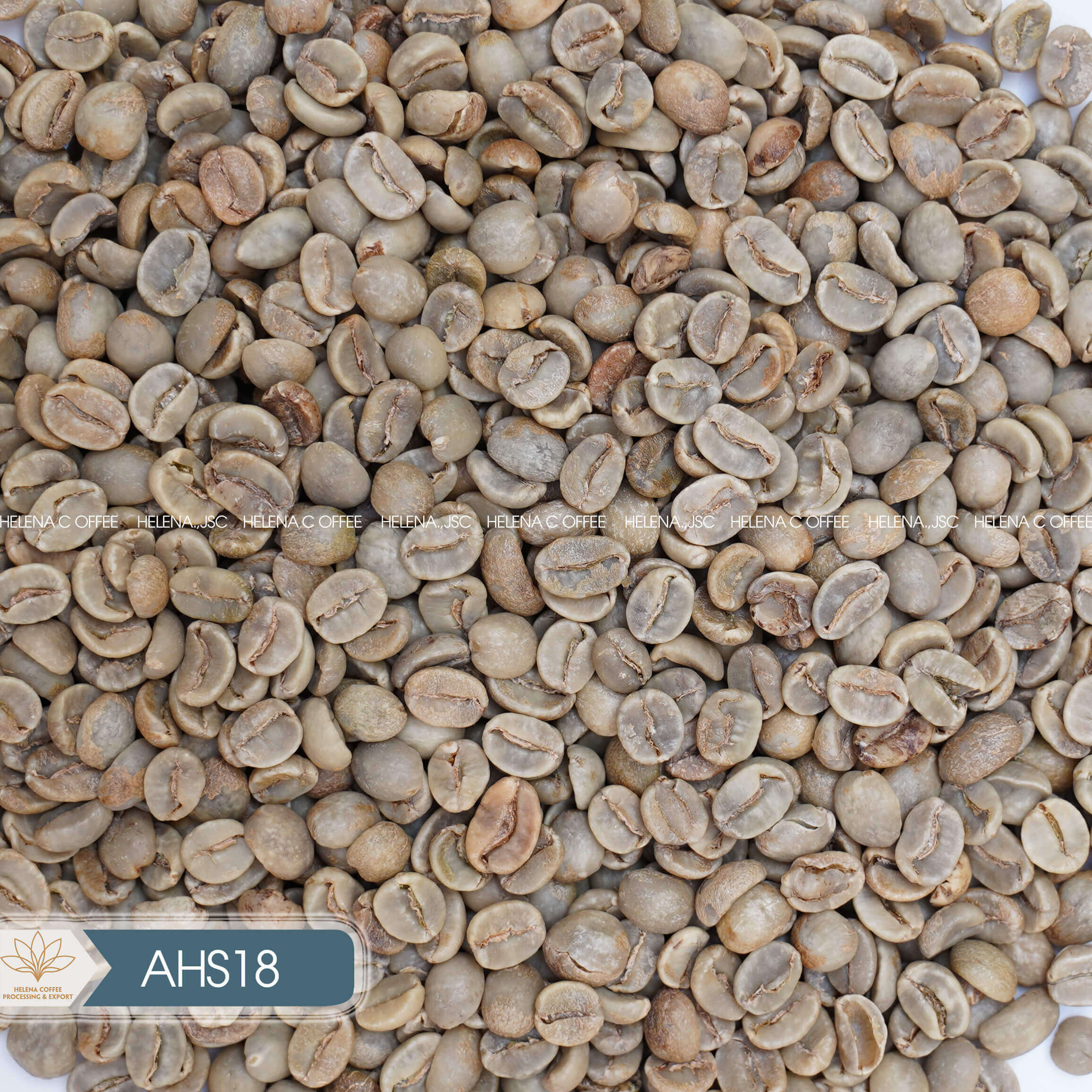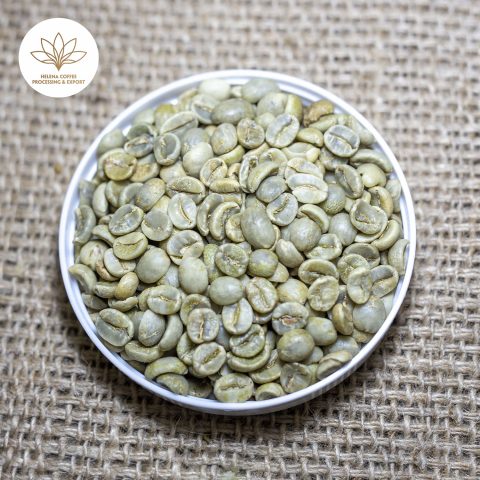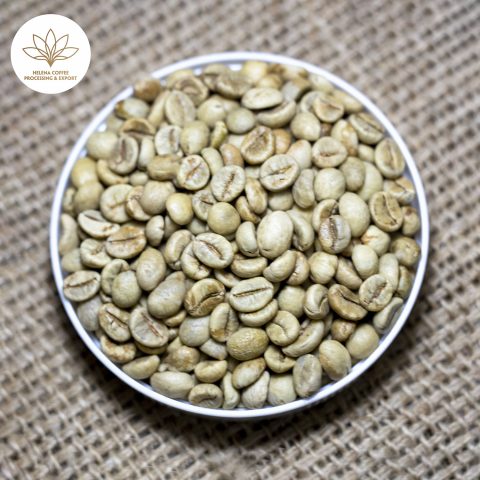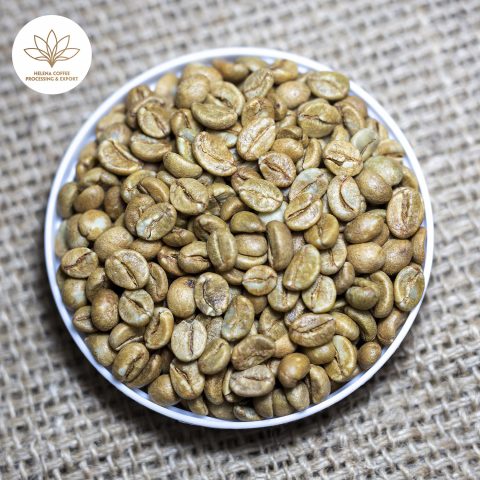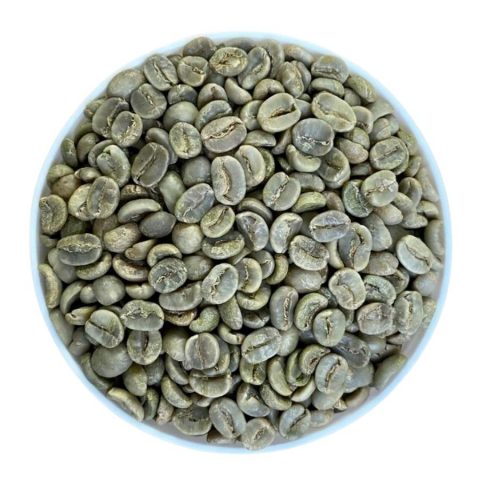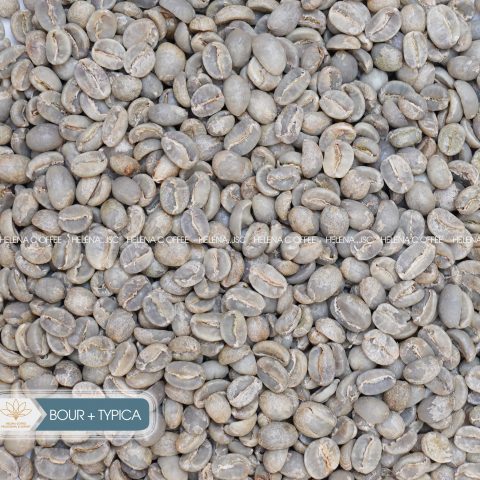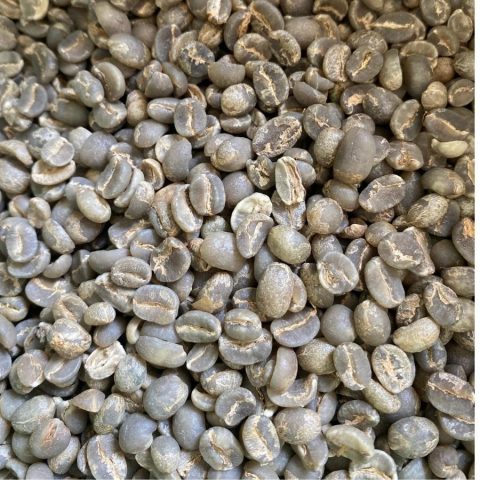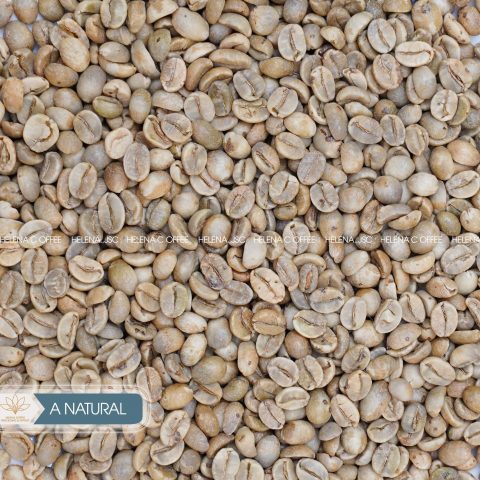Vietnam Arabica Honey Coffee Beans (S16-S18)
- Home
- Products
- Vietnamese Arabica Green Coffee Beans
- Vietnam Arabica Honey Coffee Beans (S16-S18)
Vietnam Arabica Honey Coffee Beans (S16-S18)
$10.00 $9.80
- Variety: Arabica
- Region: Lam Dong, Quang Tri, Son La
- Elevation: 1350m
- Processing: Wet Processing (Fully-Washed)
- Ripe Rate: 98-99%
- Moisture: 12.5%
- Foreign Matter: 0.1%
- Black: 0.1%
- Broken: 0.1%
- Rate on Sieve: 90%
- Bean size (Sieve): S18, S16
- Capacity: 6000 tons/year
- Price per kilogram: $/kg
Related products
You may also like…



Vietnam Arabica Honey Coffee Beans (S16-S18): The factor that creates the special flavor of Arabica Honey is the special honey processing method; or more specifically, the retention of viscous (containing 8-12% of sugar) to infuse the coffee beans; make the coffee beans after roasting more fragrant, sweet, blended with natural bitterness to create a special taste that is hard to match with any other coffee.
1. Arabica Honey – The sweetness makes the difference
Arabica Honey Coffee Beans is a high-quality premium coffee line; planted in Lam Dong, Son La, and Quang Tri – three provinces in Vietnam famous for the world’s top Arabica coffee varieties. Arabica is a kind of long-grain coffee, grown in mountainous areas with altitudes from 1000 – 1600m, where the climate and soil are suitable for the comprehensive development of this type of coffee.
The name Arabica Honey comes from its processing method. Arabica coffee when harvested; through the screening steps to select the standard coffee beans; then cleaned, peeled (but still retain the viscous part), then dried and preserved.
The factor that creates the special flavor of Arabica Honey is the special honey processing method; or more specifically, the retention of viscous (containing 8-12% of sugar) to infuse the coffee beans; make the coffee beans after roasting more fragrant, sweet, blended with natural bitterness to create a special taste that is hard to match with any other coffee.
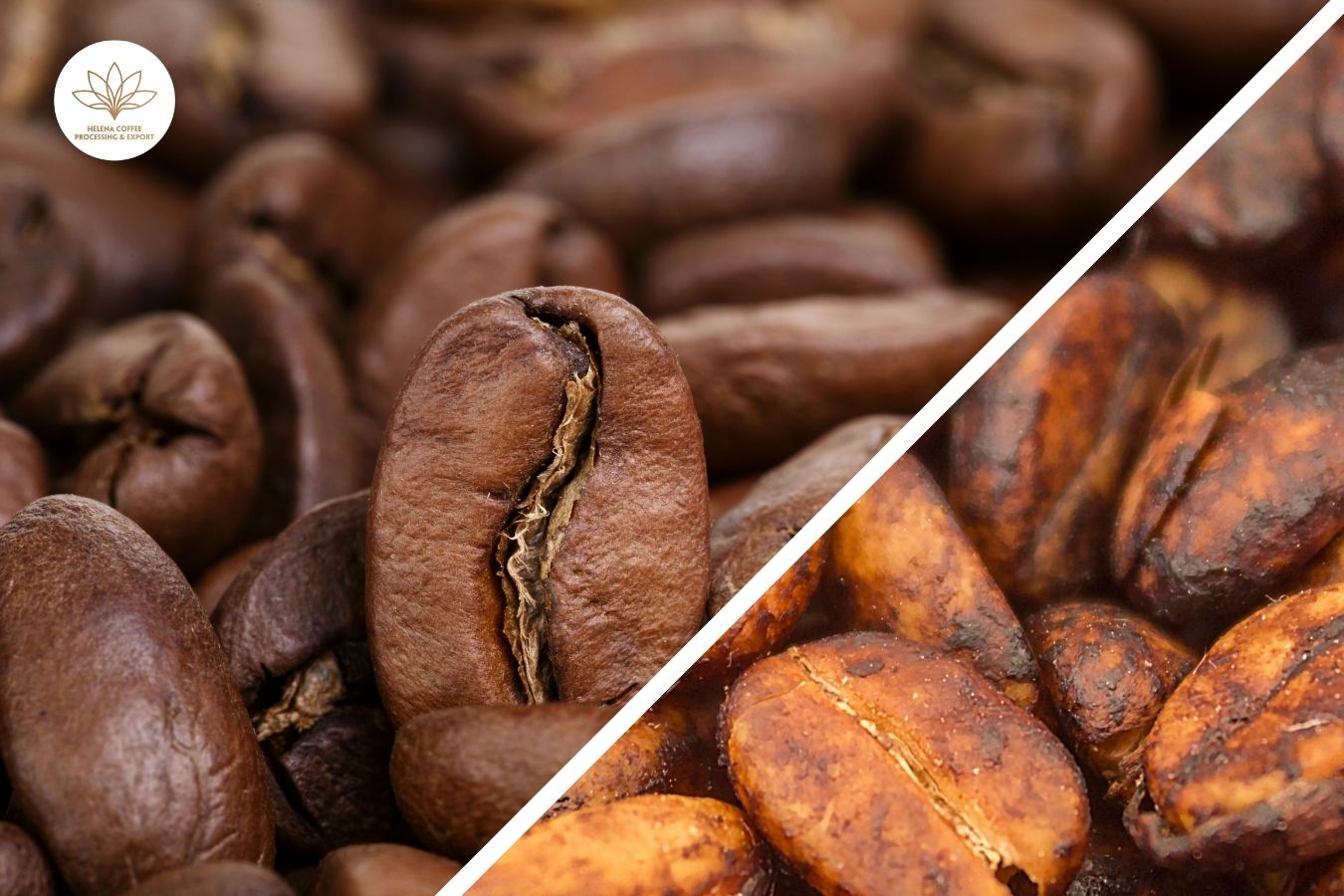
To get Arabica honey coffee beans, the processing will include the following steps:
- Step 1: Only harvest 100% Arabica ripe berries because the sugar content in the fruit will reach the highest level and the best quality for processing honey coffee.
- Step 2: Must clean the Arabica coffee beans to remove impurities before separating the shell.
- Step 3: Use drum, disc, or cone scrubbers to separate the rind (water can be used or not in this step). The above process will separate most or all of the pods from the wet coffee mass.
- Step 4: Depending on the different degrees of color, the oil separation process is carried out with different cleanliness. The darkest color is the product that is not separated from the viscous, this method is used to incubate overnight and does not use water to wash or use very little water.
- Step 5: Drying is mainly natural sunlight, if using a dryer, use it with a truss dryer, provided that the coffee beans have been dried. The drying or drying time depends on the viscosity ratio on the surface of the Arabica honey coffee beans. The higher the viscosity ratio, the longer the drying time and the greater the likelihood of clumps.
- Step 6: Arabica honey coffee is stored like other coffee, but it is important to regularly check the dry conditions in the warehouse and avoid moisture in the coffee block.
2. Features of Arabica honey coffee processing method
2.1. Advantages
Using this processing method uses less water or does not use it, or the drying speed is faster than coffee drying, helping to reduce the area of the drying yard, and reducing labor in the case of good weather, and drying conditions.
The good and correct process creates high-quality Arabica honey coffee.
2.2. Defect
Raw materials include ripe fruits at a high rate, the harvesting stage takes a lot of effort. It is necessary to invest in and equip equipment to separate shells and dryers.
Depending on the weather, the drying process also has many particles that stick together, causing uneven drying in the grain mass. Product quality does not improve much compared to dry processing.
Therefore, it is not considered a processing method for high-quality products. Arabica coffee honey is quite difficult to preserve, especially in the rainy season when the air humidity is high, the dried viscous layer will absorb water and become an environment for mold to grow inside the coffee bean.
3. Where to buy Arabica Honey green coffee?
With many years of experience in production, processing, and quality management, Helena Coffee is proud to be a supplier of high-quality and stable Arabica Honey green coffee at a reasonable price.
The successful construction of a closed model from the stage of collection, selection, and preliminary processing to the stage of operation, supply, and distribution of products; helps Helena Coffee optimize the quality control process and product stability;
This makes the products that Helena provides to customers at a very good price with very high quality.
Certifications
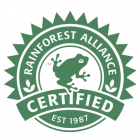

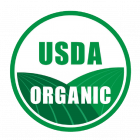
Discover the Alluring Aromas of Vietnamese Arabica Coffee
Vietnamese Arabica coffee captivates the senses with its exquisite flavors, hailing from the enchanting highlands of Cau Dat – Da Lat. As the country’s hidden gem, this exceptional bean boasts a unique and refined taste profile that sets it apart from its more widely-known counterpart, Robusta.
The cool climate and fertile soil of Cau Dat – Da Lat nurture these Arabica beans to perfection, allowing them to develop their full aromatic potential. As you indulge in the rich and complex notes of Vietnamese Arabica, you’ll uncover a delightful world of flavors that embody the dedication and passion of its growers.
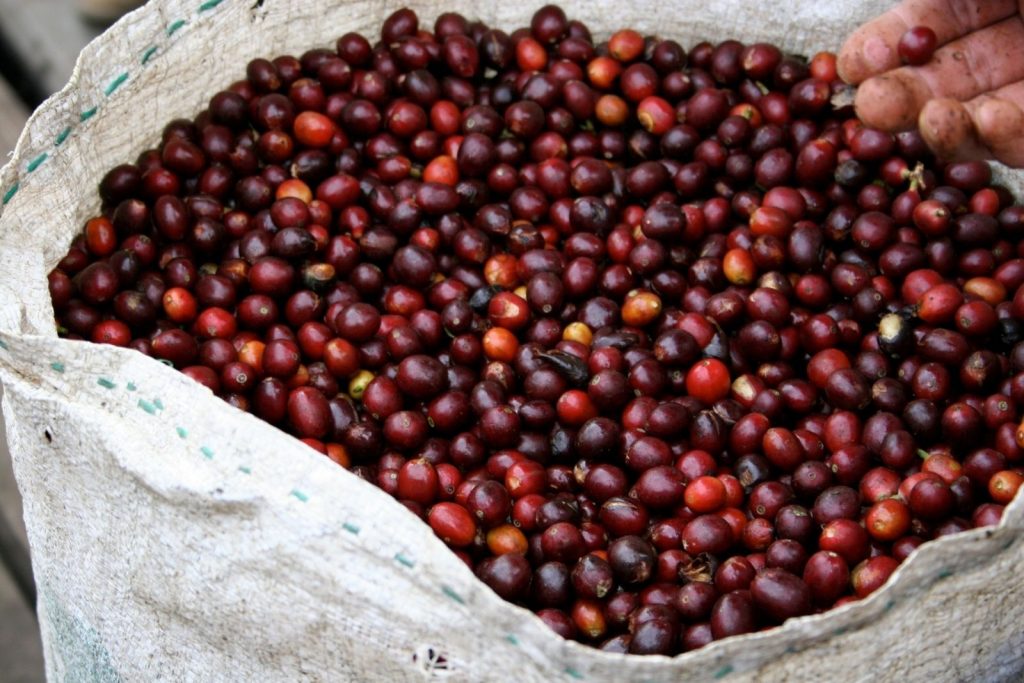
Environment
Precipitation, temperature, and humidity have a lot of say in a coffee’s maturation, overall flavor, and quality. Many coffee-producing countries are either primed for growing success or use alternative methods to improve their ecosystem.
Precipitation
1500m+
Temperature
17℃
Humidity
71%
Attitude
Elevated at over 1500 meters above sea level, the captivating Cau Dat – Da Lat region features a consistent temperate climate, with maximum temperatures never surpassing 33°C and minimums remaining above 5°C. The area’s fertile basaltic soil presents the optimal conditions for cultivating premium Arabica coffee.
Cau Dat’s distinguished Arabica exhibits a sophisticated blend of mild acidity and a hint of bitterness. Its transparent amber hue embodies the pristine environment from which it originates. The refined aroma harmonizes notes of syrup, fresh fruits, honey, toasted bread, and sunlit afternoons, creating a memorable sensory experience that captivates even the most discerning coffee aficionados.
Cau Dat’s Arabica confidently stands among the world’s elite coffee varieties, showcasing its unparalleled quality and the extraordinary potential of Vietnamese coffee.
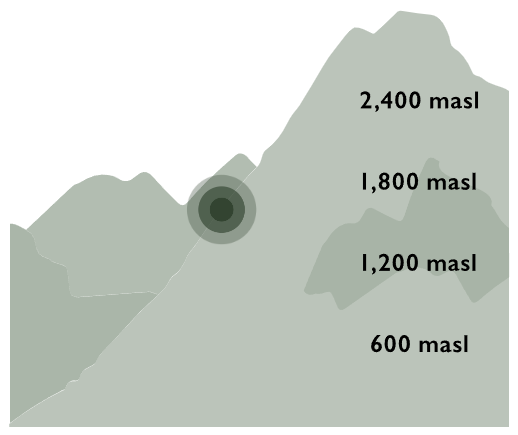
Processing
A coffee’s process describes how the seed (aka the coffee bean) is separated from the coffee cherry. Popular methods include washed, dry, and honey, but there are many other processes that put special emphasis on different aspects of these methods.
Washed
Fully Washed
Dried
Sun-dried
Natural
Fully Washed
Timeline
Harvest and export times are based off when a particular coffee will be at its peak quality. Cherries picked at the start of the harvest season tend to be underdeveloped, and those picked at the end are often overdeveloped, so producers aim for that sweet
Harvest
Export
Dec – Sept
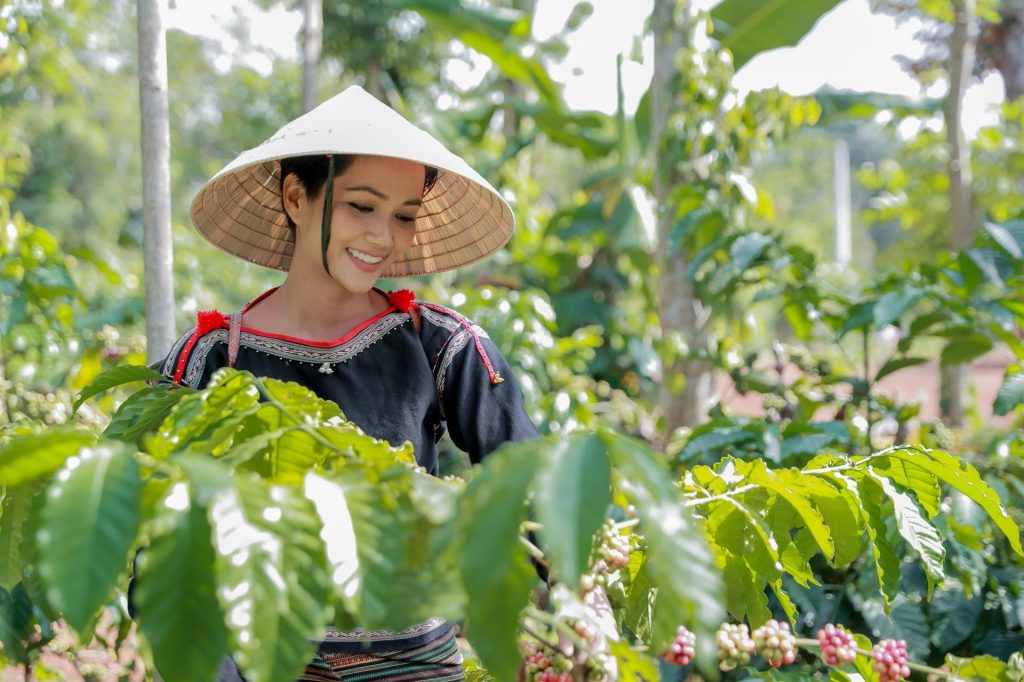
Cau Dat - Da Lat
Nestled just 24km from Da Lat city in Lam Dong Province, Cau Dat resides within the renowned Central Highlands of Vietnam. Boasting an ideal elevation and climate, this region has emerged as one of the premier locations for growing exceptional Arabica coffee.
With a vast expanse of 1,110 hectares dedicated to coffee cultivation—86% of the agricultural area—Cau Dat focuses predominantly on Arabica coffee, which makes up 98% of the total coffee crop. Remarkably suited to the local natural conditions, Cau Dat’s coffee plants thrive with minimal impact from pests. Each hectare yields an impressive 18-20 tons of fresh coffee cherries, equivalent to 4 tons of coffee beans, outpacing productivity in many other regions.
Discover the magic of Cau Dat’s Arabica coffee, where the perfect blend of elevation, climate, and dedication to quality come together to create a truly remarkable and unforgettable coffee experience.
Cau Dat has a total area of 1,110 hectares of coffee growing, accounting for 86% of the agricultural area. Especially, the area for Arabica coffee accounts for 98% of the total. Cau Dat coffee species generally really suit the natural conditions of this land and barely get affected by pests. Each hectare of the cultivated area can provide 18-20 tons of fresh coffee berries, equivalent to 4 tons of coffee beans. The productivity is much higher than other types.
